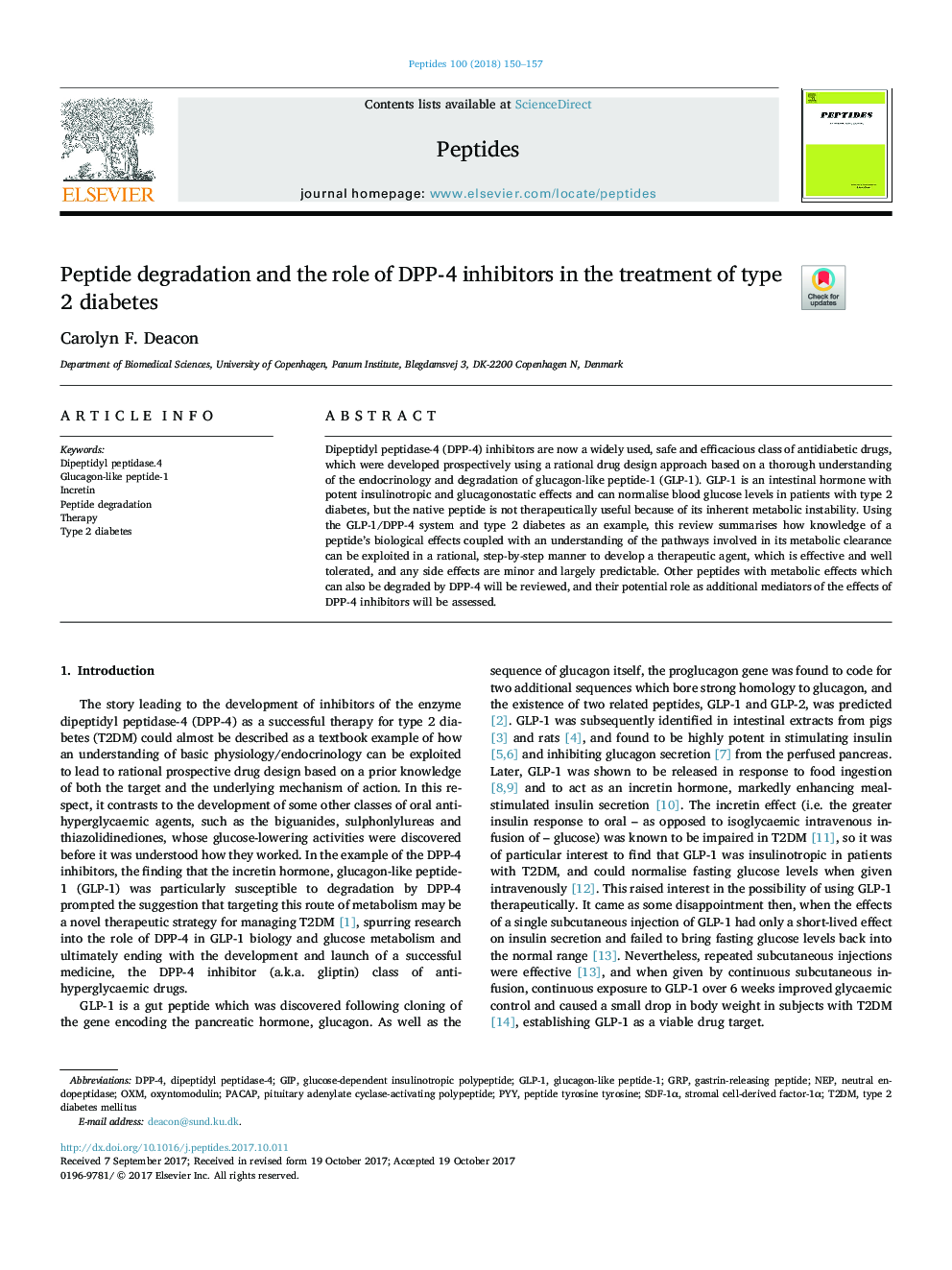| Article ID | Journal | Published Year | Pages | File Type |
|---|---|---|---|---|
| 8347488 | Peptides | 2018 | 8 Pages |
Abstract
Dipeptidyl peptidase-4 (DPP-4) inhibitors are now a widely used, safe and efficacious class of antidiabetic drugs, which were developed prospectively using a rational drug design approach based on a thorough understanding of the endocrinology and degradation of glucagon-like peptide-1 (GLP-1). GLP-1 is an intestinal hormone with potent insulinotropic and glucagonostatic effects and can normalise blood glucose levels in patients with type 2 diabetes, but the native peptide is not therapeutically useful because of its inherent metabolic instability. Using the GLP-1/DPP-4 system and type 2 diabetes as an example, this review summarises how knowledge of a peptide's biological effects coupled with an understanding of the pathways involved in its metabolic clearance can be exploited in a rational, step-by-step manner to develop a therapeutic agent, which is effective and well tolerated, and any side effects are minor and largely predictable. Other peptides with metabolic effects which can also be degraded by DPP-4 will be reviewed, and their potential role as additional mediators of the effects of DPP-4 inhibitors will be assessed.
Keywords
PYYOXMOxyntomodulinDPP-4T2DMSDF-1αGIPGRPGLP-1PACAPIncretinNeutral endopeptidasePeptide degradationTherapyType 2 diabetesType 2 diabetes mellitusDipeptidyl peptidase-4Stromal cell-derived factor-1αNEPpituitary adenylate cyclase-activating polypeptideglucagon-like peptide-1gastrin-releasing peptidepeptide tyrosine tyrosineglucose-dependent insulinotropic polypeptide
Related Topics
Life Sciences
Biochemistry, Genetics and Molecular Biology
Biochemistry
Authors
Carolyn F. Deacon,
